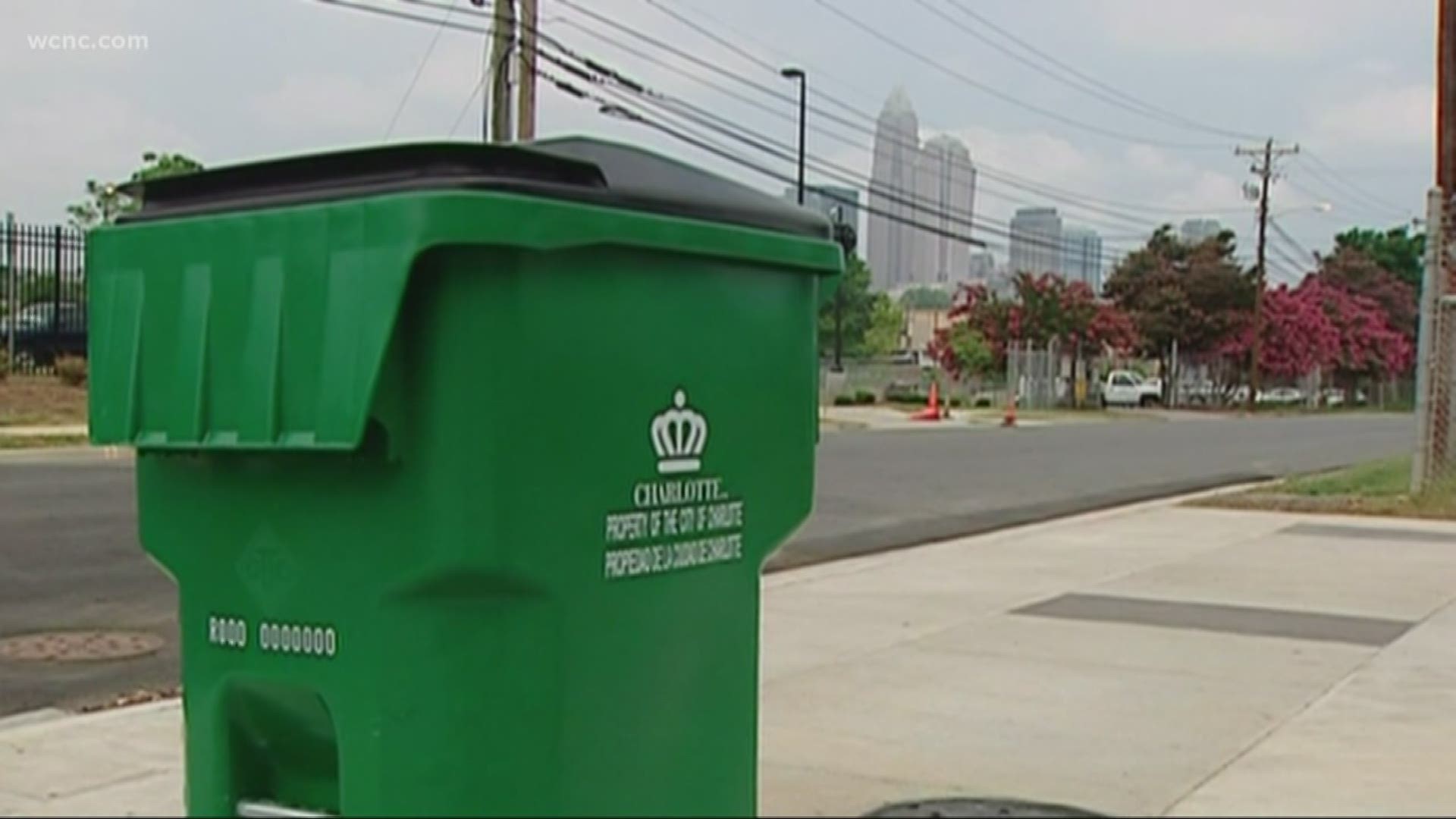CHARLOTTE, N.C. — As Charlotte cracks down on people who throw trash in their recycling bin, there's an even bigger problem: Nearly half of the homes in Charlotte didn't regularly recycle at all over the last eight years.
The Defenders know this because there's a little tracking device on every recycling bin in the city that tells officials who's rolling their carts to the curb. WCNC discovered the technology, which is almost a decade old, shows exactly which neighborhoods aren't doing their part.
The next time you're rolling your recycling bin to the curb, look at the bottom. You should see a little chip. It alerts the city when you're recycling and when you're not. There are 10 neighborhoods in Charlotte where one out of every three homes haven't taken part in the program.
Armed with information that too many homes are trying to recycle things that are recyclable, Charlotte Solid Waste is targeting 3,000 carefully selected houses with a friendly reminder they hope will change behavior.
"The green tag is positive reinforcement, saying they're doing a great job," said Beverlee Sanders. "A red tag says there are contaminants present. We would like to, as a city, become more sustainable."
In order to meet that larger goal, recycling record show the city still has a ton of work to do. Data show several neighborhoods, mostly in east and north Charlotte, are home to what are historically the lowest residential recycling participation rates.
"Our biggest issues with our customer base is they really want to be good recyclers, but sometimes they don't understand how to be good recyclers," said Charlotte Solid Waste Director Jeff Smithberger.
While every home pays for recycling services, the act of recycling in Charlotte is voluntary and according to Solid Waste, most common in more affluent parts of town. The city says some low-income neighborhoods struggle to participate.
Charlotte started an education campaign in low-income neighborhoods several years ago to try and create more healthy communities, and the city's made progress in the last two years, increasing its overall regular participating rate to about 65%.
The city knows it can do better, but if we've learned anything from the new experiment in some neighborhoods, it's just because you recycle, doesn't mean you do it right.
Solid Waste says some of the neighborhoods with the highest recycling rates are the ones that also dump trash that's not recyclable in their bins. The city says it's not that people don't want to recycle, it's just that they need more help along the way.
That's why they created the Waste Wizard, an online guide to help people know exactly how to get rid of items they have in their homes.

